My Books
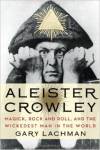 readers recognize it as a much needed fresh look at his contentious career. Writing for the the Magonia Blog, Lynn Picknett, co-author of Forbidden Universe, The Star Gate Conspiracy and many other books , has some very good things to say about it. You can read her review here. Here is an exchange I had with Sandy Robertson, author of the Aleister Crowley Scrapbook, and here is an interview about the book.
readers recognize it as a much needed fresh look at his contentious career. Writing for the the Magonia Blog, Lynn Picknett, co-author of Forbidden Universe, The Star Gate Conspiracy and many other books , has some very good things to say about it. You can read her review here. Here is an exchange I had with Sandy Robertson, author of the Aleister Crowley Scrapbook, and here is an interview about the book.

I’ve contributed an essay to what promises to be a memorable collection: Around the Outsider, a Festschrift for the writer Colin Wilson, who turns 80 this summer. Wilson is one of the most important thinkers of the last two centuries and his work has been an inexhaustible source of inspiration for me and for many others. Colin Stanley of Pauper’s Press, who is responsible for the Festschrift, has done a remarkable job publishing many works by Wilson that would be otherwise unavailable, as well as creating a venue for new writing related to Wilson’s ideas. Check out the announcement.
 The Quest for Hermes Trismegistus From Ancient Egypt to the Modern World (Floris 2011)
The Quest for Hermes Trismegistus From Ancient Egypt to the Modern World (Floris 2011)
Available now on amazon.co.uk, and released in the US on May 1.You can find an excerpt in my posts and on my Daily Grail blog.
Jung the Mystic: The Esoteric Dimensions of Carl Jung’s Life and Teachings (Tarcher/Penguin 2010)
“Gary Lachman has become an increasingly prolific engine of literate, well-written, and clearheaded books about esoteric history and ‘occulture'” - Erik Davis, author of TechGnosis.
The Dedalus Book of the 1960s: Turn Off Your Mind (Dedalus 2009) a new, revised and enlarged edition of Turn Off Your Mind: The Mystic Sixties and the Dark Side of the Age of Aquarius (Disinformation 2003; Macmillan 2001)
“A really well-researched, well-written book about a moment of destiny from which I for one was glad to escape alive” - Marianne Faithful
“Rips flower-power out by the roots to reveal the demented, psychedelic nightmare seeting below the surface… A fascinating, unputdownable masterpiece of obsesso cultural journalism. Gary Lachman deserves the satanic Pulitzer.” - Jerry Stahl, author of Permanent Midnight.
“Depicts the late-Sixties subcultural craze for the occult with graphic precision and without the whiff of Creative Writing Workshops.” - Jonathan Medes in The New Statesman.
“An impressively researched guide to the odder aspects of a weird decade. Lachman reveals the Sixties as a period when the credulous were willingly led by the duplicitous. Spiritual tourists resurrected forgotten gurus like Gurdjieff, Ouspensky, Blavatsky and the creepy Crowley. Lachman notes that the fraudulent Carlos Castaneda was published by the University of California. Such was the strange power of the repellent Charles Manson that Rolling Stone almost ran a cover declaring “Manson is innocent”, until the paper interviewed him. The result was more accurately headlined: “Is this the most dangerous man alive?” There is much in Lachman’s book to entertain and inform those who wished they had lived through the Sixties and those who did but can’t remember. If you want to know about, say, beatnik king Brion Gysin, ley-line apostle John Michell, and zen master Alan Watts, this is the place to start.” - Chris Hirst in The Independent’s paperback of the week
Into the Interior: Discovering Swedenborg (2nd edition Swedenborg Society 2009)
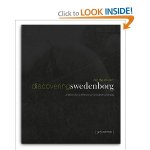
“Lachman identifies all the roles Swedenborg inhabited (spiritual thinker, psychic, scientist, inventor, statesman, traveller and possibly even spy) and does an exceptionally good job of suggesting why this little-known polymath deserves more substantial critical attention.” - Independent on Sunday
Politics and the Occult: The Right, the Left, and the Radically Unseen (Quest 2008)
“Lachman’s latest book presents the Western esoteric tradition as a richly detailed parade of characters, seething with political ambitions, follies, even infamy. He teaches by example that to understand their psychology and historical contexts is far more useful than moralizing or partisan reactions. The result is a profound questioning of the very basis of politics—including one’s own.”
—Joscelyn Godwin, Ph.D., author of Arktos and The Golden Thread
“The invisible Rosicrucian brothers of the seventeenth century, the “Unknown Superiors” of high-grade Freemasons, French utopian occultists, and Traditionalists of the twentieth century trace a continuous tradition of esoteric idealism applied to political thinking. Gary Lachman offers a panoramic spectacle of occultists and millenarian visionaries who seek to translate an absolute gnosis into a radical programme of regeneration.”
—Nicholas Goodrick-Clarke, Professor of Western Esotericism, University of Exeter
“It is unusual for a book on the occult to be not only brilliant and serious but also highly readable; Lachman has done it with ease and grace.”
—Colin Wilson, author of The Occult and Mysteries
The Dedalus Book of Literary Suicides: Dead Letters (Dedalus 2008)
“Dead Letters is an original and lively analysis of literary life (and death) that too often is sensationalised elsewhere, without proper context. The A-list of suicides includes: Ernest Hemingway, Sylvia Plath, Arthur Koestler, Yukio Mishima and others, creatively categorised as existential, romantic, surreal and manic-depressive.” - Iain Finlayson in The Times
“Lachman’s goal to write a book ‘on writers who had killed themselves or had tried to, or had written about suicide at some length or depth’ would be immense. To qualify, the author requires the suicide to be in some way ‘interesting’. Thus we have the philosopher Philipp Mainlander, who killed himself because of the second law of thermodynamics; Zeno, who purportedly hanged himself after stubbing his toe on a turtle; and Yukio Mishima’s sensational and bloody hara-kiri performance
Suicides are arranged by type: Existential suicides brought on by metaphysical issues, emotionally rich Romantic suicides; political suicides; manic-depressive mortal coil shuffling a la Sylvia Plath; and the bizarre and often nonchalant suicides of many Surrealists. Lachman focuses on little known or forgotten characters such as Polish avant garde figure Witkacy; Thomas Chatterton, ‘the original tragic Romantic genius’; narcissistic publisher Harry Crosby; and the tormented Austrian poet Georg Trakl.
The second part of Dead Letters is a selection of writings about suicide whose real value lies in Lachman’s research and his knack of smoothly relating obscure biographical tidbits and philosophical ideas.
This work on a grim subject never becomes overly morbid and Lachman remains respectful of his troubled subjects. Suicide is not recommended, but this volume surely is. Splendid summary of self destruction.” - Mike Pursley in Fortean Times
Rudolf Steiner: An Introduction to His Life and Work (Tarcher/Penguin 2007; Floris Books 2007)
“Although deeply sympathetic to Steiner, Lachman brings to this immensely readable study the balance of one who is on familiar terms with the whole range of esotericism. Reading his account of Steiner’s life and ideas, you feel you are in safe hands.” - Colin Wilson, author of The Outsider
In Search of P.D. Ouspensky: The Genius in the Shadow of Gurdjieff (2nd edition Quest Books 2006; 1st edition 2004)
“Gurdjieff and Ouspensky are two of the last century’s great esoteric thinkers. Gary Lachman does a masterful job of telling the fascinating tale of the entangling of each of their lives. Written in an erudite and compelling style, Lachman brings to life the ideas of an entire era.
—Leonard Shlain, author of The Alphabet Vs the Goddess and Art and Physics
“In this excellent book, biographer Gary Lachman leaves few stones unturned in his remorseless quest for the real Ouspensky. In doing so he creates what I believe to be the most vivid portrait yet of this contradictory man. It is a salutary lesson for all those who would put their faith in a guru. In Ouspensky’s case, high intelligence proved to be no protection against the guiles of a ‘Sly’ man. —Adrian Gilbert, author of Magi, co-author of The Orion Mystery
A review by Jah Wobble in the Independent on Sunday http://www.independent.co.uk/arts-entertainment/books/reviews/in-search-of-p-d-ouspensky-by-gary-lachman-750073.html
“Lachman on Ouspensky”: Erik Davis on In Search of P.D. Ouspensky
http://www.techgnosis.com/chunkshow-single.php?chunk=chunkfrom-2008-07-14-2136-0.txt
The Dedalus Occult Reader: The Garden of Hermetic Dreams (Dedalus 2005)
“Lachman has found in these stories such a strong linking thread that not only will you marvel that precisely the same interest in the world of hidden forms…has animated so many authors, you may even begin to think there’s something in it…There is a time and a place for these stories: it is now.”
Nick Lezard’s Choice in The Guardian for paperback of the week. Read the review: http://www.guardian.co.uk/books/2005/jan/01/featuresreviews.guardianreview16
“Following on from his intriguing Dedalus Book of the Occult, Lachman presents a generous anthology of literary texts inspired by the weird, the supernatural and the gothic. From Beckford’s Vathek to Gustav Meyrink’s The Golem, there is a successful balance of the well-known, the esoteric and the curious. It is encouraging to see Arthur Machen getting the attention he deserves; and readers will hopefully be inspired to read the complete texts.” - Stuart Kelly in Scotland on Sunday
“The first item, from William Beckford’s Vathek, indicates the feverish imaginings gathered in this “occult reader”. It encompasses drugs, sacrifice, a genii and an Indian who becomes irresistibly arousing by transforming himself into a ball. ETA Hoffman’s The Golden Flower Pot shows how this writer’s fertile imagination can animate even everyday objects, as in his best-known work, The Nutcracker. But the oddest example is the most recent. From 1999, Robert Irwin’s explicit account of cult sexual initiation somehow involves “The Gambols” cartoon strip from the Daily Express.”
Chris Hirst in The Independent
A Secret History of Consciousness (Lindisfarne 2003)
“Opens up vast vistas of possibility, suggesting that what we experience as the earth may, in itself, be inseperable from our state of mind, and that the evolution of human consciousness may be as fundamental a process as our development through genetics. A must read for those seeking an escape from our contemporary culture’s cul-de-sac” - Daniel Pinchbeck, author of Breaking Open The Head.
“Thinking outside the box, Lachman challenges many contemporary theories by reinserting a sense of the spiritual back into the discussion. Profoundly erudite, yet easy to read, this book is a provocative mind-stretcher.” - Leonard Shlain, author of Sex, Time & Power.
“A marvelously exhilirating gallop through every important modern theory of consciousness.” - Colin Wilson
The Dedalus Book of the Occult: A Dark Muse (Dedalus 2003; US edition A Dark Muse Thunder’s Mouth Press 2005)
“It’s a sure thing that anyone with a taste for literary esoterica and magical history will learn something from A Dark Muse. It’s a cavernous grotto full of dark glittering jewels, but one haunted by the shades of so many intriguing characters that keeping to the true path is difficult, and you lose your way forever. Verdict - Fine encyclopaedia of occult lives and thought. 9/10″ -
Mark Pilkington in Fortean Times
“Brisk, workmanlike and lucid, this is a survey of ‘adventurous souls’ whose output was the reverse: ‘often crazy, sometimes hilarious and, on occasion, clearly insane’. Lachman’s gallery of occultists ranges from the hypnotist Mesmer (1734-1815), whose salon had ‘an orgy-like atmosphere’, through Goethe and Balzac (who achieved enlightenment by drinking an estimated 50,000 cups of coffee), to Algernon Blackwood, an early TV celebrity who wrote the original Starlight Express, and Aleister Crowley - aka the Great Beast 666. - Christopher Hirst in The Independent
“Lachman’s highly enjoyable survey makes lots of good points and all the right connections.”
Suzi Feay in The Independent on Sunday. Read the review: http://www.independent.co.uk/arts-entertainment/books/reviews/the-dedalus-book-of-the-occult-by-gary-lachmanbrmagic-and-witchcraft-by-nevill-drury-572833.html
“A fascinating look into how occultism has moved and inspired some of the most influential figures in literature and the arts - this book has inspired me to search out my own dark muse…” - Kirk Hammet, lead guitarist for Metallica
As Gary Valentine:
New York Rocker: My Life in the Blank Generation with Blondie, Iggy Pop, and Others 1974-1981 (Thunder’s Mouth 2006; UK edition Macmillan 2002)
” A remarkable account of the fermenting of a period in art, music and culture than changed rock music forever.” Max Decharne in Mojo
“Valentine witnessed the nights when Patti screwed Christ, when Hell blanked the world, when Verlain sent guitar solos spinning slowly back into 19th century Paris…He got to argue with David Bowie and get drunk with Iggy Pop. What else is there to do?” - Paul Morley in The Guardian. Read the review: http://www.guardian.co.uk/music/2002/mar/02/iggypop.music
My Guardian account of being inducted into the Rock and Roll Hall of Fame.
I am also the author of two monographs in the Paupers Press Colin Wilson Studies Series:
Two essays on Colin Wilson: World Rejection and Criminal Romantics & From Outsider to Post-Tragic Man
and
Colin Wilson as Philosopher & Faculty X, Consciousness and the Transcendence of Time (with John Shand)
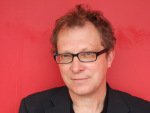
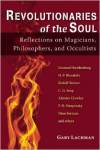

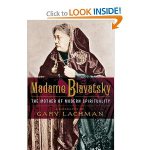
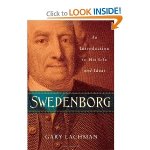
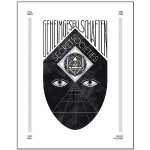

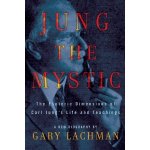
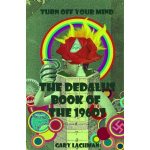
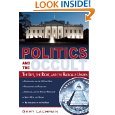
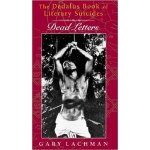
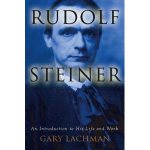
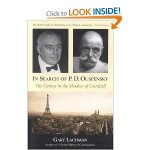
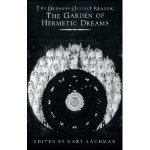
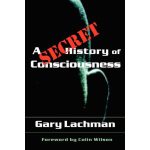
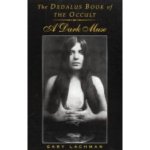
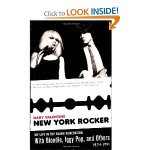
March 23, 2011 at 3:01 am
I am reading The Dedalus Book of the Occult, where you make reference to Fernando Pessoa. I was born in Portugal where F. P. is considered to be a national poet. I have read all his books, have most of them and I have several studies on his life and his Multiple Personality Syndrome. His poetry reflects the national defeatism of the nation in addition to his mental problems always fascinated me. I have had a professional interest on F. P. due to the fact that I am a Clinical Psychologist and I found this condition to be quite prevalent amongst the population. There is a full size statue of his, sitting on a bench in Lisbon in front of his favourite café “A Brasileira” at Chiado.
July 20, 2012 at 9:14 pm
I just finished reading “Jung: The Mystic” in which you discuss Jung’s affiliation/work w/ the OSS/Dulles during WWII. Sadly you have no references as to where you found the information regarding this. Since my doctorate in history dealt w/ Dulles and the CIA, and as I am currently studying to be a Psychological Counselor w/ a penchant for Jungian analysis, would you be kind enough to steer me towards where I might find out more about this extremely fascinating topic. Thanks so much.
July 20, 2012 at 11:45 pm
Actually I do reference Deirdre Bair’s biography of Jung as the source more than once. All the best
July 21, 2012 at 1:56 pm
Many thanks for the response. Will use Blair’s bibliography as a starting point. Best.
September 1, 2012 at 5:20 am
Thank you so much for writing, “Jung: The Mystic”. I have always been a big fan of his work as explained by others but found his own writings impenetrable. Your extensive research and well written biography filled in the gaps so that his thinking makes more sense to me. I am recommending your book to everyone who will listen.
September 1, 2012 at 10:35 am
Dear Kelly, Many thanks for your encouraging words. I’m glad you enjoyed the book and that it was helpful. Over the years I’ve been very grateful to Marie Louise Von Franz and Anthony Storr, for making Jun’s ideas clear and accessible. If I was able to do that, than I guess I did a good job. All the best, Gary
November 10, 2012 at 12:23 am
Please write a book on Jacob Boehme….
Love your work! Thanks.
December 8, 2012 at 12:30 pm
I heard your interview on Mysterious Universe and your book on Blavatsky sounds great. Are there plans for it to get a kindle release?
December 8, 2012 at 6:58 pm
Hi Darren. That’s up to the publisher but I imagine they will have an kindle edition available soon. Email Tarcher/Penguin and let them know they have a potential reader… All the best, Gary
January 11, 2013 at 12:21 pm
G’day Gary
I’ve just finished your book on Blavatsky. Thank you. I first came across HPB when I was 16. I had been loaned/given two books. One was Paul Brunton’s Hidden Teachings Beyond Yoga and the other was a book on HPB. I read Brunton and it blew my 16 yo mind, wrecking any prospect of an academic career. But HPB intimidated the hell out of me. She stared out from the cover with piercing eyes and she was smoking. I didn’t open the book. Her face was enough to provoke me. After all the wimpy Christian types I was grateful that somebody that robust could be spiritual, even mystical.
I have copies of Isis Unveiled and The Secret Doctrine but I confess to being an impatient [though voracious] reader and really didn’t bother enduring. I have imbibed the gist of both over the years through sundry retellings and finally found a lot of the stuff [a] not useful and [b] unverifiable. Some does resonate and draws me more toward acceptance of it in principle. But most of it I decided not to give it the necessary additional effort to fully determine whether it was of much use.
The stuff about the Masters intrigued me, because I have had my own experiences with ‘inner plane’ teachers I think to be credible. I don’t have any fundamental issue with HPB’s claims. We naively expect Masters to be deeply insightful to the point of infallibility, but that’s not the way things are. The world is way more complex than that, so no matter how good a Master may be the finer nuances of the real world are not necessarily what they are good at. One IP teacher, for example, made it quite clear that he was remote from our world and could not interpret it the way we could, so it was pointless asking him to comment on what he really had no good skill in. So the apparent ineptitudes of Masters can be sensible, if one understands that their skills in, say, politics or local group dynamics might not be as nuanced as a local person. And they do not always agree among themselves, and that surely must tell us something.
I’ve just started reading A Secret History of Consciousness. It’s a fantastic subject and one I get deeply hooked into. My most deeply inspirational author is sadly much neglected these days. Stewart Edward White produced two of the classic sources on thinking about consciousness. The Betty Book (1939) and The Unobstructed Universe (1940) are written in a style that grates upon the contemporary reader, but the contents are priceless. I’ve taken the trouble to render an ebook version of The Betty Book into a friendly format suited to an ebook reader (reformatted in Word and then PDF’d). I have been deflected from doing the same to the other book. If you are not familiar with either I recommend The Betty Book first and will happily send you the word or PDF version. I just love the succinct assertion that “everything is consciousness in evolution”. That gives me such a buzz every time I think of it.
Academic efforts at consciousness studies are so hard to read and I admire your tenacity. I gave up on Dennett and other out of sheer boredom and being simply over the tortuous logic. A few years back I read a slim volume from somebody from the LSE, can’t recall him name. He made a few statements that annoyed me because my direct experience contradicted his assertions. I wrote and told him my story and though he wrote back and said I had raised a deeply challenging point he didn’t bother having a conversation. That was rather stiff necked I thought, because we could have had a decent chat. I’ll tell you the story.
My then girlfriend (J) and I were in bed asleep. Suddenly she woke me up in a state of excitement. This is what she told me. She became aware that she was out of her body and floating right close to the ceiling. She became alarmed and called out to me. I calmly talked her back down to the bed and her body, and she woke up, and woke me up. This is what I immediately told her. I was dreaming, standing some place that seemed like a semi-arid landscape. There was a tall structure made entirely of scaffolding. On top there was a crane. I was guiding the crane to lower a body in a stretcher. The body was in a fragile state. I was guiding it toward two semi-trailer trucks parked very closely side by side. Even in the dream I paused to mentally note the surprisingly very soft suspension of the trucks.
Just as the body nearly touched down the scene suddenly shifted and J was lying on the ground. At that point an older man appeared and told me to go away. (that’s another story). At that point I was woken up. We immediately saw the connection between our two accounts. The trucks were the clincher. We were sleeping on two soft single rubber mattressed beds pushed together.
My contention to the LSE Prof was that what had happened was not possible under his theory. The chances of coincidence to that elaborate extent are so ridiculously remote that you may as well remove it as an option. We had a shared experience that was radically differently experienced. For J the experience was non-physical but completely lucid and rational, whereas for me it was physical but totally poetic and allegorical. Two sides of the one coin?
The thinking gold to mined from this experience is massive. But all I got was a courteous acknowledgement of disturbance, and absolutely no curiosity. I don’t get that. How can you be true to any ideal to inquire when you walk away from a gift like that?
I recently wrote to my brother that if we imagine consciousness as a vast ocean we are standing on the shore and hardly have our feet wet. But it is also a deeply complex ecosystem full of perils to us (as well as delights, of course). The Star Trek notion that ‘space is the final frontier’ should be recast as ‘inner space’, but it is no ‘final’ frontier. We are hardly begun on the adventure, and the frontiers are a long way off.
I am impatient to get on with reading, so I’ll bugger off, after saying thanks, again.
Mike Patterson
11/1/13
January 12, 2013 at 11:00 am
Dear Mike,
Many thanks for sharing your thoughts. I do know Stewart White’s books and have read bits of them, but not cover to cover. I’ll have to look at them again. Yes, academics certainly don’t care for much that lies outside their view of what is possible or not. I don’t bother trying to argue with them; I just get on trying to understand my consciousness, which keep me fairly busy. Your experience sounds remarkable. I have had similar experiences in which something happening in concrete ‘real life’ is translated into symbolic forms. And I’ve also had shared inner experience - I even wrote a song about them, many years ago. Many thanks also for the kind words about the books. I think its less important whether what HPB or any of these teachers says is ‘absolutely’ true or not, than what we can get from wrestling with them. They can help us think for ourselves, which is an accomplishment at any time. All the best, Gary
January 13, 2013 at 10:46 am
Absolutely agree. Where academics are is not the only way of knowing and there is no need to believe that it is, or that it is superior. The pity is that so often they cannot climb down from their high place and appreciate that other ways of knowing are just as valid and helpful in their quest. And the ‘truth’ of what teachers say is not in the detail but the essence. They are not oracles, and the good ones refuse to be treated as such. One I dealt with made it plain that he was not available to tell us things but to help us learn how to think. When we can marvel that we are conscious to any degree rather than get sucked into the conceit of what we think is the very apex of ways of knowing we can begin to learn the lessons the teachers have for us. Still enjoying ‘Secret History’ - such a buzz. Cheers Mike
January 24, 2013 at 12:43 pm
G’day Gary
A Secret History of Consciousness is one of those rare books that serves an essential fusing function. Part of me wishes I read it 20 years ago, and another part of me is grateful I did not. What is fused is a stream of ideas that has flowed beneath the surface intellectualism of Western culture so that we can now know that there is a rich and complex heritage of thinking about the nature of consciousness. Next to this the current academic efforts are tedious and uninspiring. We cannot separate spirituality from consciousness, so the materialist efforts are mere artefacts of a misguided culture.
I have long had a passion not to abandon my Western cultural foundation in favour of the easier options of adopting an Eastern path. I cut my teeth on Hindu metaphysics, then Buddhism, then Zen. I love the Chinese tradition too. But I haven’t been tempted to cross the line – an instinctive adherence to Steiner’s thought? So you have laid out the stepping-stones of Western spiritual/consciousness thought covering territory I did not know of. Now I am grateful that I do. Maybe we can place those stepping stones in company of others and create a real pathway – but one that pauses at the verge of a wild ecology we have yet to enter. There is promise of a rational discipline, and that is vitally important.
I disagree with your critique of the anthrosphere. The process of civilization is not the same as the evolution of culture and it is a pity that we conflate the two. Civilization is a specific kind of culture that shifts the point of reference and identity from Nature to the domain of human fiat. We replicate the fundamental psychic architecture in our own made domain. For example we are evolving technology that replicates animistic perception. This is an evolving narrative so I have no expectation that we will attain happy agreement among all participants any time soon. In fact what we need is vigorous engagement and excited exploration. We have a long way to go.
I am grateful that there are other discussions about our dual nature. I see this in terms of an ‘Earth’ nature and ‘Star’ nature, the latter favouring a post-biological and post-terrestrial destiny that seems to be shared by materialists and the religious/spiritual alike. The expression of this ‘Star’ nature seems have been precipitated by the emergence of a passion for astronomical observation. I link that with the emergence of civilization simply because I see the greatest imperative to settle and remain in one place is the need for long term observations of the heavens. Theorists have asserted that the city began as a defensive structure but I say as a novel social structure around religious/scientific observation of the heavens. The city, that gave us ‘civilization’, is a style culture that arises from the complexities of a large population mass staying in one place and all the resultant innovations needed to make that possible and successful. One such result is the progressive alienation from intimate relations with the natural world.
As we move our reference point of identity from Nature to the complex systems of human created and maintained living we alter our sense of who we are and what is fundamental to our thriving. This has altered our consciousness in a fundamental way. But I like the idea that where once we humans instinctively wore our relations with Nature as a garment we now have to develop a self-aware relationship. And that is impeded or filtered by the human-made world. If we take the evolutionary pathway articulated by Blavatsky, individual self-awareness is really at the bottom of the devolutionary chain and the beginning of the evolutionary pathway. When we separate out individual self from all the only way is up – what some might see as redemption [a loaded term to be sure].
I have reflexively bought a bunch of books as a result of reading A Secret History to explore the seminal thinking better. I really find that the best thinking spans from the mid 19th to the mid 20th centuries. After that we have academics with less and less exposure to the liberal arts tradition. I prefer my anthropologist, for example, to have had exposure to Biblical, Greek and Roman traditions and maybe even some Masonic influence thrown in. Later atheist/materialist scholars bore me with their elaborate mental machinations.
I have found rethinking animism to be very useful to my purposes. I am wary of even the best –intentioned efforts to tell us how our ancestors thought, and some of the views you surveyed struck me as being somewhat ethnocentric. By reviewing animistic thought I am more inclined to think in terms of awareness than consciousness. This is not just a language quibble. We talk of consciousness as the grand scheme and then degrees of consciousness when maybe we need to think in terms of consciousness on the grand scale and awareness to express our experience of it, simply to distinguish different meanings. The fact is that our language is crude and presently unsuited to the job.
In this respect I deeply appreciated the discussion on language. I am of the view [first expressed to me by a now unknown thinker] that we have lost the capacity for the ready metaphysical conversation. This is certainly true over the past 50 odd years as the metaphysical component of education has been slowly eliminated. So we need the poetic, the mythic, the metaphoric so that we can convey the multi-dimensional import of thought. Eventually we can craft this into a disciplined language that embraces the scientific and the poetic – as with the mystery traditions. That is; the tradition of the thought and language is there already and what we need to do is validate it and invigorate it.
At present I simply things in a crude way. I distinguish between the physical and the metaphysical as a simple duality. Metaphysics is anything that is not physics [or mathematics finally]. In an equally crude way I see the materialistic as mechanistic and the metaphysical as animistic. This will be profoundly offensive to a lot of folk but there is a simple problem when it comes to thinking about consciousness and you ably demonstrated it. It can get too elaborate and too much the province of egg-heads. My position is that we can and must democratise it and make it accessible to the masses.
But don’t get me wrong. A Secret History is a must read for aspiring egg-heads. Indeed for anybody who wants to get a good handle on an aspect of Western culture usually suppressed by religious and materialist thinking. The ironic thing is that both religious thought and scientific materialist thought would benefit from thinking about consciousness this way, because it would liberate both from plodding thought.
I am unabashedly political in my views. I take a simple perspective. Power is derived from what you think and your passion to push it. In a civilization every thought it political because it finally influences the dominant thought and hence the dominant conduct. How we think about consciousness is political, because that will influence what we value, how we conduct ourselves on a personal and communal level, and hence how our human-made domain impacts on the rest of the planet.
Ergo A Secret History is a kind of political primer – not in terms of telling folk what to think but by giving them the tools to think more deeply. It was a blast to read. I made heaps of notes, flagging a bunch of stuff I want to think through and savour in the coming months. Its now on my must read list and I will urge others to buy it, and if they do not I’ll buy it for them.
Thank you.
Mike Patterson
24/1/2013
January 26, 2013 at 10:53 am
Hello Mike. Many thanks for sharing this in depth and thoughtful response to reading the book. There’s a lot here to consider. Here I’ll just say that I think there is a ‘feedback’ relationship between consciousness and language. With each new word we develop to express nuances and insights into consciousness, the world gets bigger, and that bigger world then requires more precise language in order to map it. This is how philosophy proceeds, as far as I can see. I don’t believe ‘mystical’ experience is ‘ineffable’, just very difficult to pin down. But that is our job, at least as I see it. All the best.
January 26, 2013 at 2:23 pm
Language shapes our responses to evolving consciousness but it is also political and can impede evolution. The 20th C has been a shutting down of much of the 19th C energy and this is the problem with consciousness theorists. They are not political. We can dignify the various permutations in consciousness theory in intellectual terms when what may be most pertinent is the political dimension. At the moment I move between poetic an political language to convey what I want to say.
I want to plainly state that nowhere else I have come across such a survey of thought on consciousness as you have delivered. My comments are in consequence of reading your book, not in spite of. I am hence profoundly grateful that you have stimulated even nascent ideas drawn from other sources because you have focused attention on the subject of the evolution of thinking on consciousness in Western civilisation. That is an immense service.
My focus is on the political dimension because that is, I think, the dimension of our time. We need the intellectual elegance of Bergson and company but what will make a difference now is streetwise metaphysics. We need to step down the intensity of the old ways of knowing to suit the massification of thought these days. otherwise we are just wanking among friends. And that is what I ran away from 20 years ago.
You have started a conversation that we must have concerning where we are going with our consciousness, but also, ergo, with everything else. But given fewer and fewer folk are able to digest the sources you cited there comes a point when you distinguish between being a source, and being an enabler. Hence we need to move from egg-headery to polemicalitly.
These are exiting times. Consciousness is the ‘final frontier’, not space. This is where we want the adventurer of emerging generations to go. You have young kids and I have a 7 yo grandson. What do we want them to be thinking when they are adult? We can shape the evolution of consciousness by participating in its intentionality. We can be guided by a noble and moral vision on where we want human consciousness to move to.
It is an immense cultural challenge for us in the coming years. Your book is a great contribution to the evolutionary challenges ahead. I am going to move on to your book relating to the 60s/70s. I was there and I’ll be interested to see how my memories match your thought.
Just about to start on ‘Global Rebellion’ by Mark Juergensmeyer - Religious challenges to the secular state.
Cheers
Mike
November 3, 2013 at 6:37 am
Just finished your book on the Quest for Hermes. Well done it has prompted me to read some of your other works.
November 3, 2013 at 1:03 pm
Dear Katie, many thanks for saying what every writer likes to hear. All the best, Gary.
April 12, 2014 at 11:23 am
I have a question on Jung and you seem to have gone before me in your research. In your book you write concerning Emil Schwyzer that “none of the previous clinics he had been in [presumably you refer to before he came to Burghölzli] had a patient’s library.” Couple of questions. (1) How did you find that out? and (2) did you intend to include there also the London clinic? As a side note. YOu say Schwyzer had no interest in Mythology. He does speak of having become a mason in London, and certainly thre is a lot of esoteric stuff there. I am also intreaged as to whether he came in contact with the theosophical society in London, a thing I expect we well nebver be able to discover. Thanks
April 14, 2014 at 12:40 pm
Dear Ron. Many thanks for your question. I’m pretty sure I got the information about Schwyzer from Deidre Bair’s biography of Jung. Your questions about his contact with Freemasonry and possibly the Theosophical Society are indeed fascinating and I’m sorry to say that I can’t enlighten you about them. My apologies for not being of more help. If you do come across any material about this, I would appreciate it if you could post it here. All the best, Gary
May 1, 2014 at 11:34 am
Hi Gary, I have a number of your books including A Secret History Of Consciousness and In Search Of P.D.Ouspensky. On re-reading the Ouspensky book it occurred to me that he really finished up in a cul-de-sac with nowhere to go in order to make progress.
Its a little depressing to think that if a man of the stature of Ouspensky failed then it does not hold out much hope for the rest of the seekers like us looking for answers to the riddle we find ourselves in.
On Gurdjieff, I found his description of finding a map of pre-sand Eygpt with the Sphinx already built quite stunning. As West and Schoch have subsequently proved the Sphinx is far older than we are told and this only verifies that Gurdjieff was telling the truth.
This entire episode actually led me to visit Egypt in 2012.
By the way, I found both your books highly readable and quite brilliant and they sit beside my Colin Wilson collection.
May 2, 2014 at 9:38 am
Hello Patrick. Yes, Ouspensky’s last days were tragic and when I think of them I feel a great sadness. But he did display enormous honesty in those last lectures he gave, when he told his students that there was no ‘system’ and that they had to start from the beginning and work things out for themselves. This is perhaps the most difficult task of all. His early work - Tertium Organum and the essays making up A New Model of the Universe - remain important explorations of the possibilities of consciousness and In Search of the Miraculous is one of the great spiritual adventure stories of all time and is unquestionably a classic. Let us learn from his mistakes and even more from what he got right, which was quite a bit. Thanks for the kind words about my books. I am glad you enjoy them. All the best, Gary
June 30, 2014 at 1:07 pm
Hi Gary !
just finished your (excellent) book Turn Off Your Mind: The Mystic Sixties and the Dark Side of the Age of Aquarius. Sadly it is the only one that is translated to Finnish - hope someone takes up the task to translate your books.
Just a thought : the part where you wrote about music etc. You should check out band called Fields of the Nephilim. They are very into Crowley et company.
https://en.wikipedia.org/wiki/Elizium
“McCoy is well known for his mystical and occult-based lyrics and beliefs. His works often make reference to Aleister Crowley, although he is not publicly a follower of Crowley’s Thelema religion. Clay disc recordings of Crowley’s voice can be heard on a handful of Fields of the Nephilim songs, specifically on Elizium one of Fields of the Nephilim’s biggest hits, “Moonchild”, shares a name with one of Crowley’s novels.
In interviews, McCoy has hinted that he sees his on-stage performances as theurgic, magickal or shamanic workings. He is also an admirer of Austin Osman Spare (taking the name of the Fields of the Nephilim live album Earth Inferno from a work by Spare) and has thanked “AOS” in dedications on his albums. In another nod to Chaos magic, Fields of the Nephilim’s song Psychonaut shares its name with a book on the subject by Peter J. Carroll, and quotes lines from the Necronomicon.”
I wish you all good !
July 1, 2014 at 12:58 pm
Hi Oswald. Thanks for the kind words about Turn Off Your Mind. Oddly enough, Like, my Finnish publisher, recently acquired the rights to my new book Aleister Crowley: Magick, Rock and Roll, and the Wickedest Man in the World, so that should be available in Finland sometime next year. If you think they should translate some of my others, please let them know! And many thanks for the info on the Crowley-inspired band. Too bad I didn’t know about them earlier - I would have put them in the book. All the best, Gary
August 2, 2014 at 12:25 pm
Hi Gary, I am re-reading Turn Off Your Mind (2001) and thought I’d Google you and I see you have plenty more to read. “A Dark Muse” interests me (along with many of your others) as I have a similar book “Paranormal People” by Paul Chambers. I’ve had Ouspensky’s book, “In Search of the Miraculous” on my shelf for a while now still waiting to be read along with Jacques Bergier’s “Secret Doors of the Earth” and several more of this ilk. I very much liked Colin Wilson’s “Poetry and Mysticism”.
I look forward to reading more of your books in the future.
August 5, 2014 at 9:07 am
Hi Martin. That you are re-reading a book of mine is the kind of encouragement every writer fantasizes about. I’m glad you’re enjoying and intend to check out some of my others. I hope you like them enough to re-read them too - with some time in between of course. All the best, Gary
June 11, 2015 at 4:51 pm
re: I read “Aleister Crowley” and my reaction, the entire time, was that there’s a big difference between people who write about metaphysics who “know/ have experienced/ have been there/ got the T-shirt” vs those who “think they know/ haven’t a clue.” You’re good, Gary, and one doesn’t say that about everyone. Bravo. Now back to Gnosticism in Los Angeles in 2015.
June 12, 2015 at 9:44 am
What can I say Ellen? That’s the kind of comment every writer wants to hear. All the best, Gary.